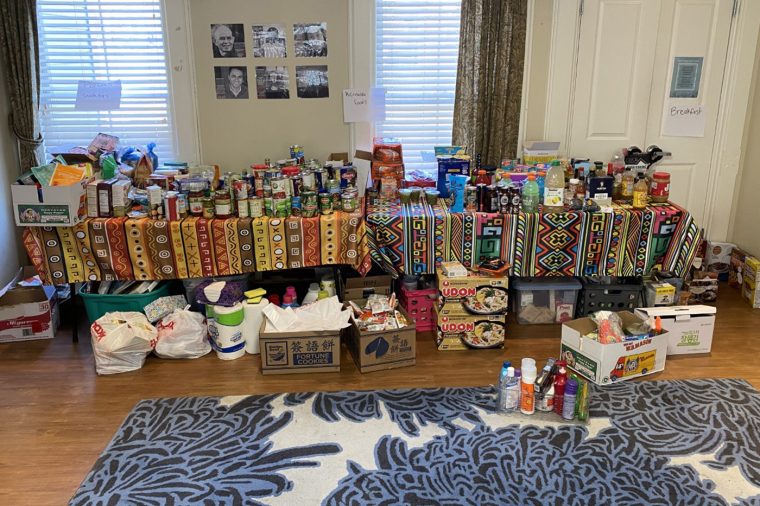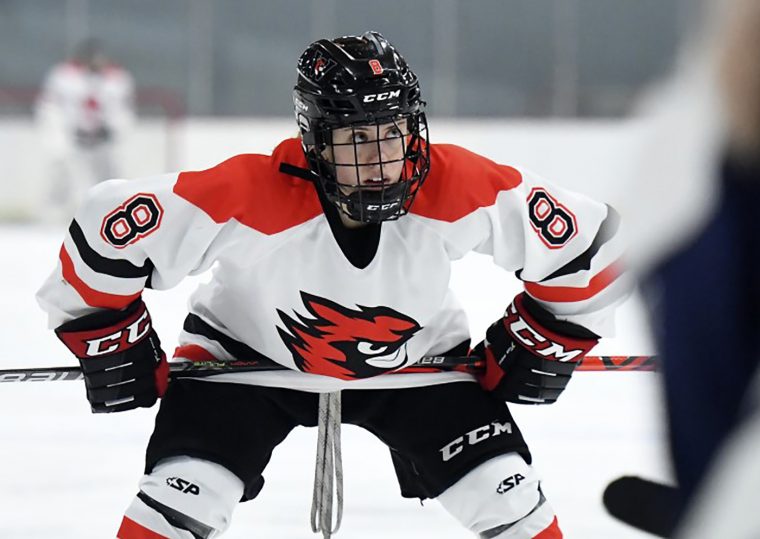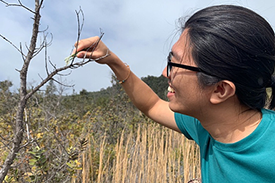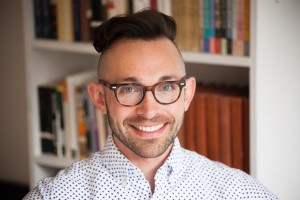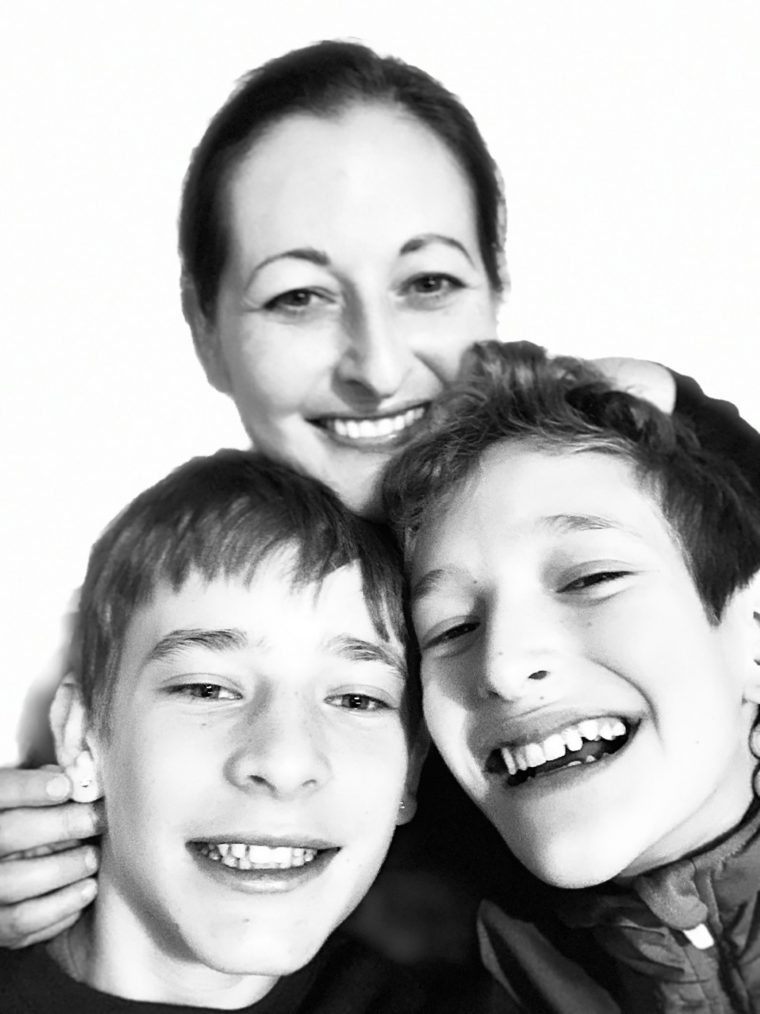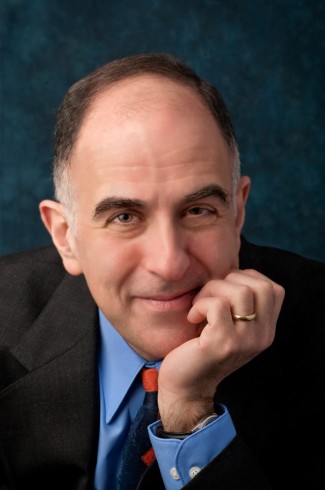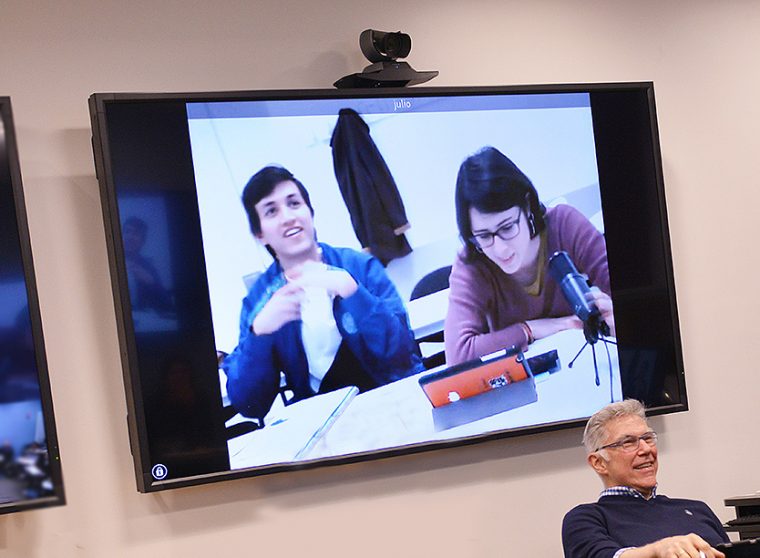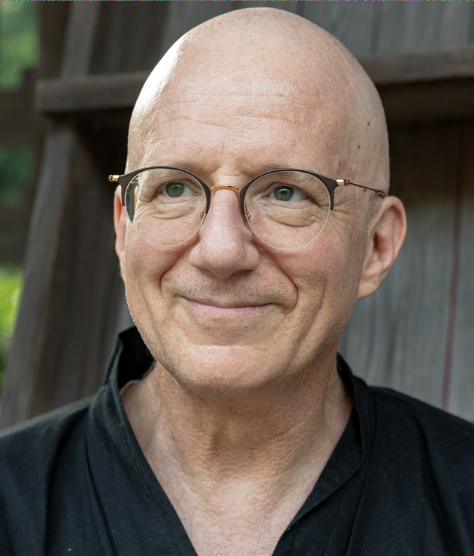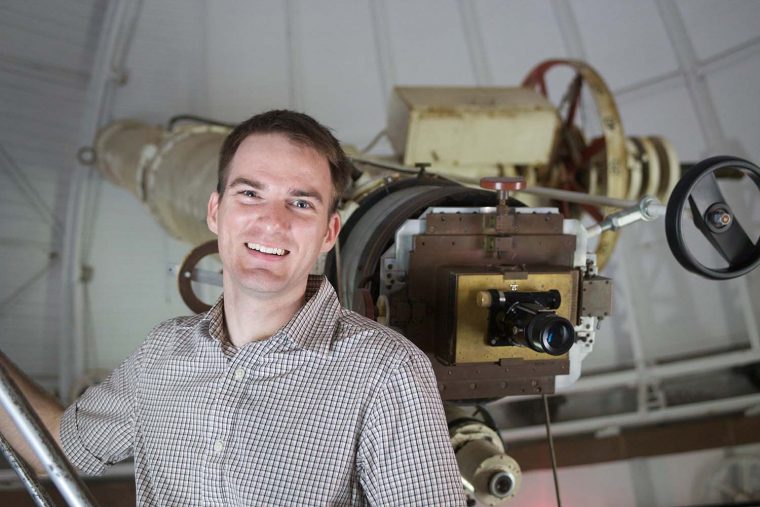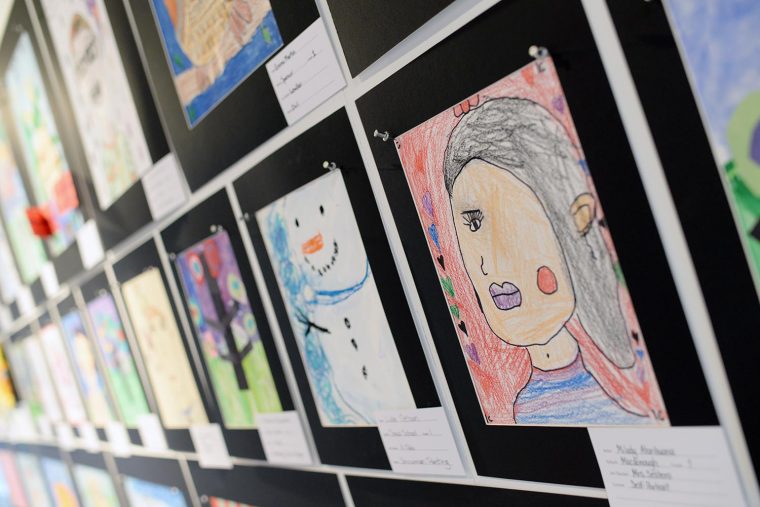The Wesleyan Resource Center is collecting food and other items to support low-income and food-insecure students who continue to reside on campus during the COVID-19 pandemic. The center will be open seven days a week. Items can be dropped off or picked up between 10 a.m. and 5 p.m. Mondays through Fridays, and noon to 6 p.m. Saturdays and Sundays. Suggested donations include: Pasta kits (microwaveable mac and cheese, rice meals, ramen, etc.) Canned food with pull tabs (vegetables, beans, pasta, etc.) Food in sealed individual serving cups (applesauce, vegetables, fruits) Toiletries (shampoo, body wash, soap, mouthwash, tissues) Cleaning supplies…
Wesleyan's winter athletic teams put a total of 80 student-athletes on the 2019–20 New England Small College Athletic Conference (NESCAC) Winter All-Academic Team, while eight earned a spot on the 2019–20 NESCAC All-Sportsmanship Team. In order to earn a spot on the All-Academic Team, a student-athlete must have reached sophomore academic standing and be a varsity letter winner with a minimum grade point average (GPA) of 3.50 or equivalent on a 4.0 scale. Transfer students are eligible as long as they have completed at least one year of study at the institution. Wesleyan ranked seventh out of 11 schools with…
Sixteen earth and environmental science majors from the Class of 2020 recently conducted field research in Hawaii as part of their Senior Field Research course. The class, E&ES 498, is taught by Tim Ku, chair and associate professor of earth and environmental sciences, and Suzanne O'Connell, professor of earth and environmental sciences. The course is open to students who completed E&ES 497: Senior Seminar, and focuses on improving scientific research skills. Past classes have conducted research in Death Valley, Calif., the main island of Puerto Rico, the Connecticut River Valley, and the Big Island of Hawaii. The field research took…
Beginning May 4, 2020, Roger Mathew Grant will succeed Nicole Stanton as Dean of the Arts and Humanities division, and beginning July 1, 2020, Janice Naegele will succeed Joe Knee as Dean of the Natural Sciences and Mathematics division. The announcement was made by Rob Rosenthal, interim provost and senior vice president for academic affairs. Roger Mathew Grant, associate professor of music, received his undergraduate degree from Ithaca College and his PhD from the University of Pennsylvania. In his recent book, Peculiar Attunements: How Affect Theory Turned Musical (Fordham University Press, 2020), he considers contemporary affect theory in relation to European…
Anna Shusterman, associate professor of psychology and co-coordinator of education studies, studies learning and conceptual development in children. In this Q&A, we asked her for advice for families on transitioning children to distance learning during the COVID-19 outbreak. Q: How should parents talk to kids about what’s happening in the world and why their daily lives look so different? A: Full disclosure: I am not a clinician. However, as a parent and a research psychologist, I think it’s important for parents to validate their children’s emotions rather than dismissing them or telling them they are being silly. It’s also important…
Richard Grossman, professor and chair of economics, is an expert in economic history as well as current policy issues in macroeconomics, banking, and finance. In this Q&A, we asked him about the economic fallout from the coronavirus pandemic, and how the government is responding in efforts to mitigate the damage. Q: We’ve all seen the headlines about a coronavirus-induced recession. What is the current state of the economy, and what do you predict we’ll see over the coming months? A: Prior to the virus outbreak, the American economy was doing well by conventional standards. The unemployment rate was 3.5% in…
The central consideration for Wesleyan’s faculty and administration during the transition to a distance-learning model as a result of the threat of COVID-19 has been how best to support students (particularly those who are high-need or have extenuating personal circumstances) and ensure the continuity of their Wesleyan experience. “We say we’re a caring community,” President Michael Roth ’78 noted in an all-staff call on Tuesday, March 17. “Now is the time to prove that. We are practiced at pulling together, usually on joyous occasions. But right now, we have to prioritize flexibility for our students, faculty, and staff so that…
William Johnston, the John E. Andrus Professor of History, is a historian who studies disease and medicine, with expertise in epidemics of infectious diseases. In this Q&A, Johnston discusses the novel coronavirus outbreak and what can be learned from the past. Q: How and when did you start studying the history of disease and medicine? A: About 30 years ago, I wrote my dissertation on the subject, which became my first book, The Modern Epidemic: A History of Tuberculosis in Japan. Around that time, people were starting to consider epidemics of infectious diseases a thing of the past that were…
If a spacecraft were to quickly travel outside the solar system—potentially en route to a nearby exoplanetary system—it would need to pass through an atmosphere unfamiliar to scientists on Earth. As a recipient of a $415,000 grant from NASA, Seth Redfield, chair and associate professor of astronomy, hopes to learn more about the mysterious makeup of this "outer space." "There are several very early designs for an interstellar probe, but first, we need to understand the properties of the space in between the stars if you are traveling through it, especially at high speed," Redfield said. "Given the vastness of…
Wesleyan in the News 1. USA Today: “America Has a History of Lynching, but it’s Not a Federal Crime. The House Just Voted to Change That” Benjamin Waite Professor of the English Language Ashraf Rushdy is interviewed on the topic of legislation that would make lynching a federal crime. In the interview he called lynching “the original hate crime.” “Lynching is a blot on the history of America,” he said. “But it’s never too late to do the right thing." 2. The New York Times: “Starbucks Baristas Accuse Service Company of Abuse and Pay Gaps” Associate Professor of Sociology Jonathan…
(more…)
Award-winning writer/director Jan Eliasberg ’74, P’19 made her debut as a novelist with Hannah's War, a story inspired by the real-life physicist Dr. Lise Meitner, whom an article in the Aug. 6, 1945, issue of the New York Times referred to as “a female, non-Aryan physicist,” noted for helping the Americans develop the atomic bomb. Hannah's War was published by Little Brown on March 3. "Jan Eliasberg knows how to open big with strong suspense and wry humor and take us for a hurtling ride through one of America's most complex moments," said Amy Bloom ’75, Shapiro-Silverberg Professor of Creative…


